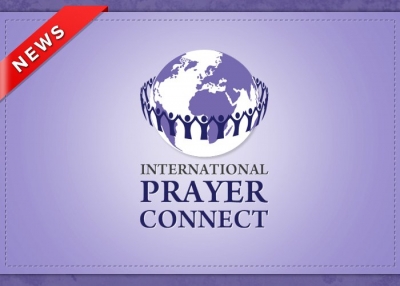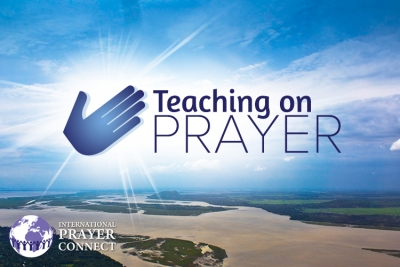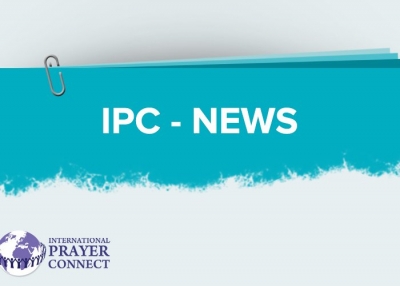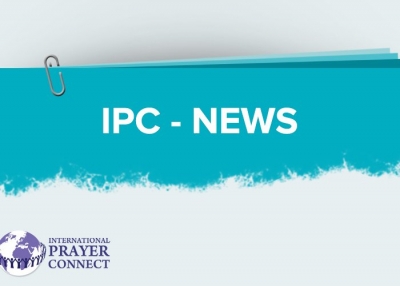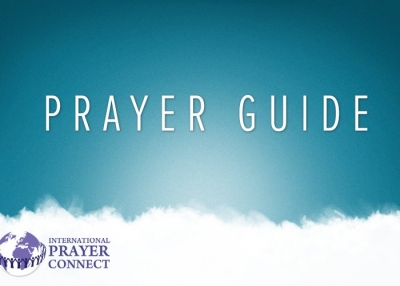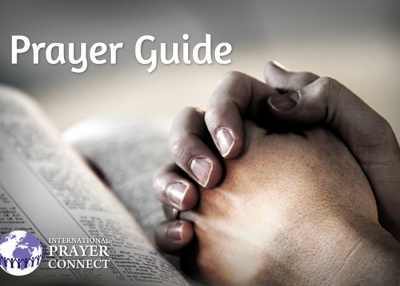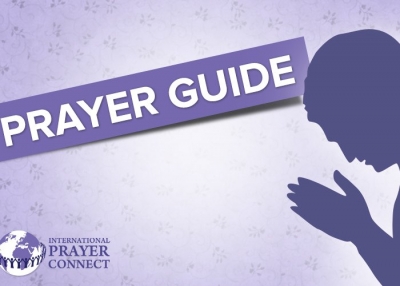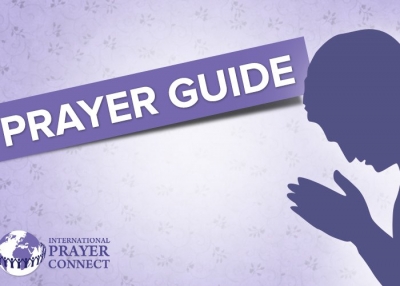Window International Network (www.win1040.com) reports that since “December 26th, Iranian security forces stepped up their efforts to eliminate the ‘corrupting’ influence of Christianity by arresting 25 Christian Believers.” In January of 2011, estimates range as high as 60 arrests with many detained.
Elam Ministries (www.elam.com) report 70+ arrests. There have been reports of torture besides intense interrogation where they are blindfolded and questioned for hours and days. Psychological pressure is placed upon them so they would renounce their faith in Christ Jesus. No family members are allowed to visit during the interrogations.
Click Here for pictures of some of those arrested.
Please pray:
1. The Lord will be present with all Christians who have been arrested, questioned, detained, and tortured—that God would give them strength, comfort, the ability to love and forgive. May Christ be glorified in their sufferings.
2. Pray for swift end to the ordeal the prisoners go through.
3. For police officials that they lose the hatred for Christians and be moved by the Holy Spirit for themselves to be saved. Pray for the government to find favor with the Christians in their country.
4. That God’s power of protection and love for His Children be clearly demonstrated before the Iranian police to see what kind of God He is.
5. For God to reveal dreams and visions to those who govern, fear God, and persecute Christians.
Sudan Support Network (www.givengain.com) reports:
It's final and it's true. The amazing referendum results announced this Sunday in Khartoum. There is a host of reasons to praise God related to the referendum. To just think of some of these:
• The high percentage vote of the registered voters.
• The incredibly high percentage vote in favor of secession.
• The ABSOLUTE zero number of legal complaints about the referendum process and results.
• The degree of acceptance that the referendum was in essence free and fair by the Khartoum government and the high level of support of that from the people in North Sudan.
• The almost lack of news coming out of Sudan, indicating the global acceptance of developments in Sudan.
• The high level of commitment by the people of Southern Sudan to move towards declaring independence on 9 July 2011.
• The mature leadership of the Southern Sudanese Government in seeing the referendum through from start to finish.
• The apparent high levels of commitment from both the Governments of North and South Sudan to cooperate on transition to the new dispensation.
• The high level to which this is and was a bloodless transition. This was THE key prayer focus in the build-up to the referendum. It reminds a lot of the miraculous peaceful transition to a democratic state in South Africa in 1994.
• The extent to which God has answered prayers for the referendum.
The way has been opened for the people of Southern Sudan to declare their independence in July this year.
Besides joining in with all the praises listed above, please pray:
1. For the new South Sudan President Salva Kiir that God would give him servant’s heart, great wisdom and discernment, and success in building up South Sudan.
2. That post-referendum arrangements regarding the sharing of oil revenues, demarcation of borders, and the status of the border region of Abyei will be resolved fairly and amicably.
3. That both North and South Sudan will have a good relationship and never to become enemies.
4. For Christians to know the freedom of worshiping God without fear for their lives.
From the 14th to the 18th of May 2012, Jakarta, Indonesia will play host to the World Prayer Assembly, (WPA). The Assembly is expected to be the largest gathering of prayer, church and market place leaders since the first International Prayer Assembly that was held in Seoul, Korea in 1984. That first prayer assembly unleashed a great prayer momentum across the globe from 1984, which led to the growth of global missions, the opening up of various nations which hitherto had been shut to the gospel, and a great awareness on the subject of spiritual warfare.
Jakarta, Indonesia, was chosen as venue for this global gathering because of strategic reasons. First, the International Prayer Connect (IPC) felt led by the Holy Spirit to Indonesia. Secondly, Indonesia has a vibrant prayer movement and a Church that is open and willing to host intercessors from across the world. Thirdly, Indonesia is the largest Islamic nation in the world. The Assembly will be co-hosted by the Korean Church, which has a reputation for prayer. This means that two Asian countries will be hosting the World Prayer Assembly. Asia is an emerging continent in all spheres of life. Economically the Asian countries are dominating the world. In terms of technology, the Asian countries are well ahead of many other countries of the world. It is believed that six out of every ten people in the world come from Asia. This means it is a continent we cannot afford to ignore. These reasons put together, informed the choice of the Indonesia as a host country for the WPA.
The theme of the WPA is NEW WAVE. The question that may come to mind is why a new wave? The theme, New Wave, is appropriately chosen because it symbolizes what we sense God is about to unleash on the global prayer movement, and of course, the Church. Waves are caused by the wind. The season and the wind determine the intensity of waves. Waves are usually the delight of surfers who take advantage of the waves to display their surfing skills. In our next issue we shall be considering in detail the implication of the theme of the WPA and what preparations we have to make in the prayer movement to ride on the crest of the new wave that is about to come upon the Church.
For now, it need be said that the expected gathering is not going to be one of those Christian gatherings we are used to. This time the gathering will be different and unique. Participants should come expecting to experience a unique, fresh, exhilarating encounter with the Holy Spirit that would radically transform their lives. We must be prepared to listen to what the Holy Spirit is saying to us as individuals, and to the Church as a body. The gathering will be tri-generational; that is to say, it will involve the children, the youth, and the elders. “Why children?” one may ask? The WPA is going to be a paradigm shift from the past. For sometime, the Spirit has been saying that the children and the youth have long been neglected. It is now time to carry them along and to do a conscious mentoring of the new generation. If the prayer movement is not to experience a disconnect with the next generation, then it must mentor and carry the youth and children along. Mentoring the next generation has to be done conscientiously and creatively.
In Isaiah 25:6,7 the Lord promised to make a feast for all nations; “a feast of fat things full of marrow, of well refined wines on the lees.” This is what the World Prayer Assembly is going to be like. The call is to all who are eager to know what the Spirit is saying to His church to gather together in Jakarta, Indonesia, from the 14th to the 18th of 2012. In anticipation, I say, “Welcome to WPA 2012. I look forward to seeing you there!”
(www.worldprayerassembly.com)
Protests within 15 Arab countries across North Africa and the Middle East have exploded in the past month, starting with a small rural town in Tunisia where the result the overthrow of a corrupt and repressive government. Here is a quick rundown on the current situation for prayer:
Libya
Muammar Gaddafi threatens continued major violence against the people who continue to protest and demand his resignation. (There are reports that more than 2000 have been killed in the fighting between rebel and government forces.) Tens of thousands have fled. Please pray: for peaceful transformation; for the needs of those fleeing the country to find safety; for political and religious freedom long suppressed to become a reality; and for the overthrow of wicked, oppressive authority and a government to be set in place that detests corruption and serves its people.
Tunisia
The New York Times reports continued turmoil in Tunisia with the influx of Libyan refugees, the outflow of Tunisians heading to Europe, and new rounds of protests. Tunisians say there is a power vacuum causing enormous challenges in rebuilding the political system. The police force has been badly weakened by mass desertions and firings of top officials. Provincial governments are dysfunctional. There is a risk of the nation falling into “anarchy”. The World Food Program is assessing the needs of the Libyan refugee influx. Please pray: for the formation of a government with the full backing of the Tunisian people that allows for political and religious freedom; for true peace to come to the land; and for the knowledge and resources to handle the refugees from Libya.
Egypt
With the resignation of Mubarak, protestors shouted that “Egypt is free!”; however, freedom is not yet felt by the Coptic Christians as they continue to be victims of discrimination in various parts of the country.
The Christian Post reports that Egyptian Christians have been urged to cooperate with Muslims to ensure equal rights for minority groups. Christians and Muslims have shown solidarity in recent protests. An IPC friend writes…February 6th was called the “Day of the Martyrs”—a day to remember around 300 who lost their lives since the beginning of the protests. Muslims prayed with Christians, forming a human belt, and then Christians were given a chance to speak on the platform in front of hundreds of thousands of Muslims. The Coptic Church refused to do mass outside a church building, but the evangelical church said they would do so. One of the elders went on stage and proclaimed the name of Jesus and worshiped Him in public. Muslims listened and were responsive to the message of peace delivered in the name of Jesus. Some cried out “United as one” and “Let it be peaceful” and were echoed and chanted. One elder told the crowd that the Bible says blessed is Egypt My people. The elder proclaimed that over 2,000 years ago, a man stood up against corruption (Christ Jesus), and that he stood for peace and was hated and killed, and that in His Spirit, they were now standing and calling for peace. Songs only sung inside churches before were allowed to be sung in public.
This was the first time Christ had ever been proclaimed in public in Egypt. This church ended with song proclaiming Christ on the land. Amazement at the Muslim response of “Amen” came after the elder concluded with prayer. Afterward, a famous Egyptian writer who had written against Christians for years came to the elder apologizing for all he had written and promised to write this new side he had never seen of Christians coming in the Name of Jesus speaking love, peace, and justice. Another Muslim public figure noted that many Christians were absent in the days of protest because they were fasting and praying for 3 days instead of joining the violence. He reported on public TV that this was a wonderful testimony for Christ. Also, a prominent woman has allowed this church to openly lead prayer and worship in public!
Please pray: for the heart of the country to change and be accepting of Christianity; for wisdom and justice by the military authorities reforming the government; against the danger of militant rule; that Christians will express their frustrations in Christ-honoring ways and not be tempted to “run” in troubled times; that the Holy Spirit would bring revival in the Middle East; for protection of Christians; for the economy to recover; for the preservation and civil rights of the Coptic Christians; for a government that is free from corruption and seeks the good of the people.
Iraq
The New York Times reports that Iraq’s protests had a different climate to them. They were not seeking to topple their leaders but were demanding better government services after years of war and deprivation.
Please pray: for peace and escalated progress toward reform, stability, and services to the people; pray for the Christians who experience harassment, torture, discrimination from the extremists; that the Christians’ rights will be defended and that they will be able to show the love of God.
Yemen
Thousands of demonstrators for and against President Ali Abdullah Saleh took to the streets, and a cleric whom the US accused of having links to Al Qaeda joined the protestors calling for the replacement of the government with an Islamic state.
Oman
Recently, hundreds of demonstrators clashed with riot police in Sohar, a port city. Two were left dead. Shortly after this violence, Sultan Qaboos bin Said ordered that an equivalent of $386 a month be given to every job seeker. Some were not challenging his rule but sought better living conditions.
Bahrain
In a nation of 500,000, there were 100,000 demonstrators on February 22nd. Further demonstrations blockaded parliament on February 28th. The King released political prisoners, and the Crown Prince Salman bin Hamad al-Khalifasaid called for dialogue to preserve the monarchy and unite the nation.
Morocco
Thousands have rallied for political reform and limits on the power of King Mohammed VI, whom many have considered on the side of the poor.
Kuwait
Hundreds of stateless Arabs demonstrated for basic rights and citizenship. Human Rights Watch called for the release of dozens.
Djibouti
Three top opposition leaders were released after protests.
Jordan
King Abdulla II urged speedy reforms and dialogue to battle corruption amid protests there. He dismissed his Prime Minister and replaced him with one who is widely seen as clean of corruption.
Syria
Under Basher al-Assad, Syria continues to operate under a dictatorship. In February, 2011, campaigns were forming on Facebook and Twitter to demonstrate in Damascus, but no one showed up except police officers and security forces.
Algeria
On February 12, 2011, riot police went up against a protest in the capital of Algiers. Hundreds were calling for demands for change. The government promised concessions. Five died in riots in January, 2011. Unemployment, recession, and large-scale corruption are to blame.
Please pray for the above countries: that God would bring about peaceful solutions to the dissatisfaction of the people; that transition of governments would go smoothly; that dialogue would bring peaceful reforms and an end to corruption for leaders; that the ability to change religious preference would not be hindered but allowed by the new governments; that people would have better living conditions; and that Christians would be a witness of Christ’s perfect love, serving God honorably and being strong amidst persecution.
OTHER WAYS TO PRAY and ACT:
Steering the Winds of Change—Arab World Prayer Gathering
On March 4, 2011, Youth with a Mission (YWAM) asks for prayer for North Africa and the Middle East. For more information, go to www.ywam.com. An excellent “Arab World Prayer Pack” is available for your use. A 24/7 prayer week (February 28 to March 6) is going on. To sign up for a time slot, go to www.google.com/calendar, sign in with This email address is being protected from spambots. You need JavaScript enabled to view it. and the password yarp4moroc.
Christian Solidarity Worldwide had a “No Way Out” campaign to stand in solidarity with Egyptian Christians through prayer, petition, and donation. They seek 50,000 signatures on petition by August 26 calling for action to stop religiously-motivated violence, justice to be served, and compensation for the victims.
Compass Direct News (www.compassdirect.org) reports that in December and January, Iranian authorities reportedly released 62 of the 120 Christians arrested for their faith as well as one held in prison since June of 2010. Iranian religious and political figures acknowledged the existence of home fellowships and called them a threat to the state. Some were released on bail that range between a few thousand dollars to the deed on a house. Elam Ministries (www.elam.com) reported that some Christians reported solitary confinement and harsh interrogation. Christian Solidarity Worldwide (www.csw.org.uk) reported that 45 Christians were detained for one night in several towns and cities as part of a policy of harassing non-Muslims. “Silence is the worst thing about the situation of Christians in Iran. The Christians in Iran suffer from the silence of the international community.” Many are put to death secretly, but if news is made about a situation, there is reluctance.
The BBC reported that recent Tehran street protests were broken up by riot police and militia on motorcycles. Protests came a day after websites closed to opposition leaders Mir Hossein Mousavi and Mehdi Karroubi, and both are said to have been jailed.
Please pray: for the safety and release of Christians persecuted and imprisoned in Iran; for the increased faith and courage of all believers; for the government to be reformed so that political and religious freedoms are upheld for all.
International Christian Concern (ICC) learned that Said Musa, an Afghan Christian who was arrested in May and scheduled for execution in February for his conversion to Christianity, was released from prison in late February after aggressive international diplomacy. He is now safely out of the country and will be re-united with family. However, Shaoib Assadullah, also an Afghan Christian, is still behind bars for giving a Bible to a man who later reported him to authorities. He faces the same charges of apostasy (leaving Islam) with the death penalty.
Please pray: give thanks to God for Said Musa’s release from prison; continue to ask for the release of Shaoib Assadullah; for Afghan Christians to not fear death and to remain faithful, and for ultimate religious freedom in Afghanistan.
At least 20 people were killed and dozens wounded in heavy fighting in Mogadishu, Somalia’s capital, in late February when African Union peacekeeper forces attacked an extensive underground fortification system of trenches and tunnels used by Islamist insurgents. The African Union’s official mission is to protect Somalia’s weak transitional government. Shabab, one of the biggest insurgent groups, are among those that rule large sections of southern Somalia and clan militias loosely control the rest. Some of the mortar shells hit camps of the internally displaced people who had been living in bubble-shaped shelters made of twigs and plastic sheets after their homes had been destroyed.
Please pray: that the insurgents will be weakened and overthrown; that Somalia will have peace and an ability to rebuild; for the government to take increased control of the country, and for Somali Christians to find favor with the new government.
Compelling video feeds of important prayer concerns are accompanied by prayers that you can join in with at Prayercast (www.prayercast.com). “It is our hope that not only would individuals be spurred to heartfelt prayer through Prayercast’s online resources, but also that small groups, churches and organizations would use them in corporate settings to unite in prayer.” One can also post online personal prayers for various countries.
